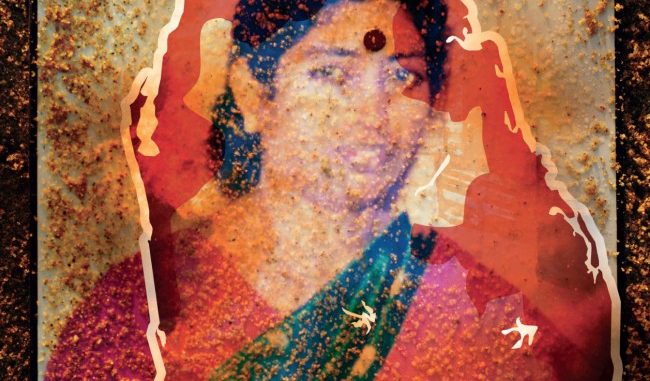
Review of play called 'The Island Nation'
The following review is written by Clare Doyle, a well known activist with the Committee for a Workers’ International and the Socialist Party. She is someone who has followed Sri Lankan politics for a long time and visited the so called “Paradise Island” at some of the critical moments covered in this play.
Clare outlines some key political processes addressed in the play and has done the review from the point of view of the impact it could have on the British audience.
The fact that it has been produced with little or no involvement of Sri Lankan activists and people campaigning for Tamil Rights is a minus, but does not detract from the skilful presentation of the tragic events of the 30 year-long civil war and the hypocrisies of the authorities – Sri Lankan and international – in relation to it.
A powerful play called 'The Island Nation' was shown recently at the Arcola theatre, Hackney. Hopefully, this run will not be the end of it. It packs into 90 minutes so much about the untold horrors of the Civil War in Sri Lanka – the lies, the hypocrisy, the tens of thousands of human tragedies, the blind eye turned by international bodies like the United Nations as well as the major governments of the world.
Written by Christine Bacon, it draws heavily on the book 'Still Counting the Dead' by Frances Harrison who also helped with the development of the play.
In a small theatre room, with no stage and few props, the actors switch in and out of various characters. There is Erik Solheim negotiating with LTTE 'envoy' Anton Balasingham. There is president Chandrika Kumarasinghe getting blinded in the eye by a terrorist attack and rattling off the history of violence in the "paradise island" (not excluding the murder of her president/father by a Buddhist monk and her filmstar/husband by the chauvinist JVP).
The cease-fire of 2002 was short-lived. The 'Tigers' seemed prepared to give up their demand for a separate state (which in some respects they already had) and would discuss a federal arrangement with power-sharing provisions. But after two years the war was back on and the bloody regime of Rajapakse was installed.
The play covers the tragedy of the December 2004 Tsunami. Thousands were killed in the area of Mullaitivu – later to be the killing fields of the Sri Lankan Army as they slaughtered tens of thousands of Tamil civilians at the end of the war.
The denouement
There are a few attempts at humour in the play when for example the NGO and UN volunteers from abroad try to forget the horrors around them by going through a box set of 'Sex in the City'! But rapidly, as Rajapakse steps up the military assault on thousands of unarmed Tamil people, they become horrified and angered by the cynicism, bungling and cowardice of the bodies they work for. The director of the UN in Colombo refuses to believe the numbers of casualties and orders the evacuation of the UN staff.
When a top military man (possibly Rajapakse himself) declares arrogantly to the audience that "Not a single civilian has been killed in the operations!", I find tears in my eyes and I shake and sob with anger.
The young volunteer for the UN explodes at the same point. These atrocities, mass killings of civilians "in a 'Safe Zone'!" she shouts. She rails against the injustices, the lies, the hypocrisy. "Nobody here is going to report what is happening – not the peace-keeping forces, not the politicians, not the humanitarian organisations! Shouldn't we be telling the world what we know?…
"There has been a blanket of silence drawn by the big powers. Nothing said about the arms deals, the Israeli jets…The White House knows; but they're the ones who got UN support for going into Iraq to kill tens of thousands! The winners are never prosecuted for war crimes…"
If the play has one or two deficiencies, it is probably that it is not critical enough of the methods used by the LTTE to conduct their struggle, including the terror attacks in the South in which not only politicians but workers and children were killed and maimed. The playwright did not put a fully rounded out position on the national question and the need for workers' unity against the common enemy. But… it was not written by a Marxist. It is worth seeing if it is put on in any other forums. A night to remember!
Special financial appeal to all readers of socialistworld.net |
Support building alternative socialist media Socialistworld.net provides a unique analysis and perspective of world events. Socialistworld.net also plays a crucial role in building the struggle for socialism across all continents. Capitalism has failed! Assist us to build the fight-back and prepare for the stormy period of class struggles ahead. Please make a donation to help us reach more readers and to widen our socialist campaigning work across the world. |
Donate via Paypal |
| M | T | W | T | F | S | S |
|---|---|---|---|---|---|---|
| 1 | ||||||
| 2 | 3 | 4 | 5 | 6 | 7 | 8 |
| 9 | 10 | 11 | 12 | 13 | 14 | 15 |
| 16 | 17 | 18 | 19 | 20 | 21 | 22 |
| 23 | 24 | 25 | 26 | 27 | 28 | 29 |
| 30 | 31 | |||||


Be the first to comment